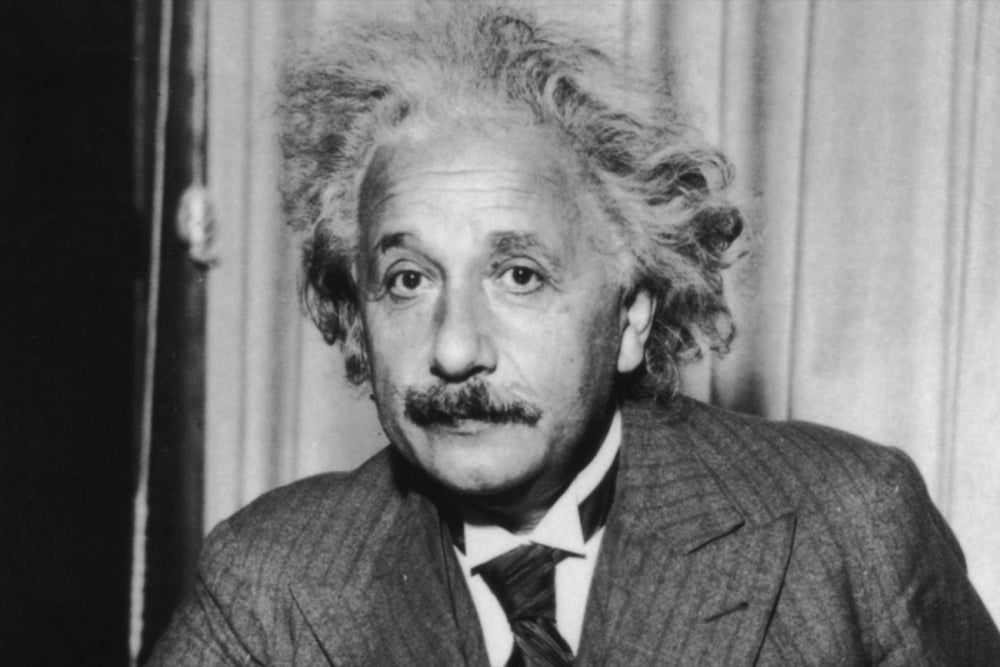Relatively Speaking

We tend to think that the implications of the equivalence of mass and energy are confined to nuclear reactions. The reason that the fission of uranium releases energy is that the products of that nuclear decay have less mass than the reactants. The same is the case in the fusion reaction in our stars and hydrogen bombs; the mass of the hydrogen is greater than the helium that is produced.
Yet E = MC2 is at work all around us. A battery loses mass when it is discharged, and the hydrocarbons we explode in the engines of our cars have more mass that the reactants (CO2 and water).
Einstein is perhaps humanity’s most celebrated genius, but he’s almost as well known for his quotes as he is for physics. Speaking about nuclear weapons, he said, “Had I known what they would do with my discovery, I would have become a locksmith.”
In the end, of course, he went the way we all do. Late in life, he would wander around Princeton, hopelessly lost. Out of desperation, he’d approach a stranger and ask, “Pardon me. I’m Albert Einstein. Do you happen to know where I live?”
